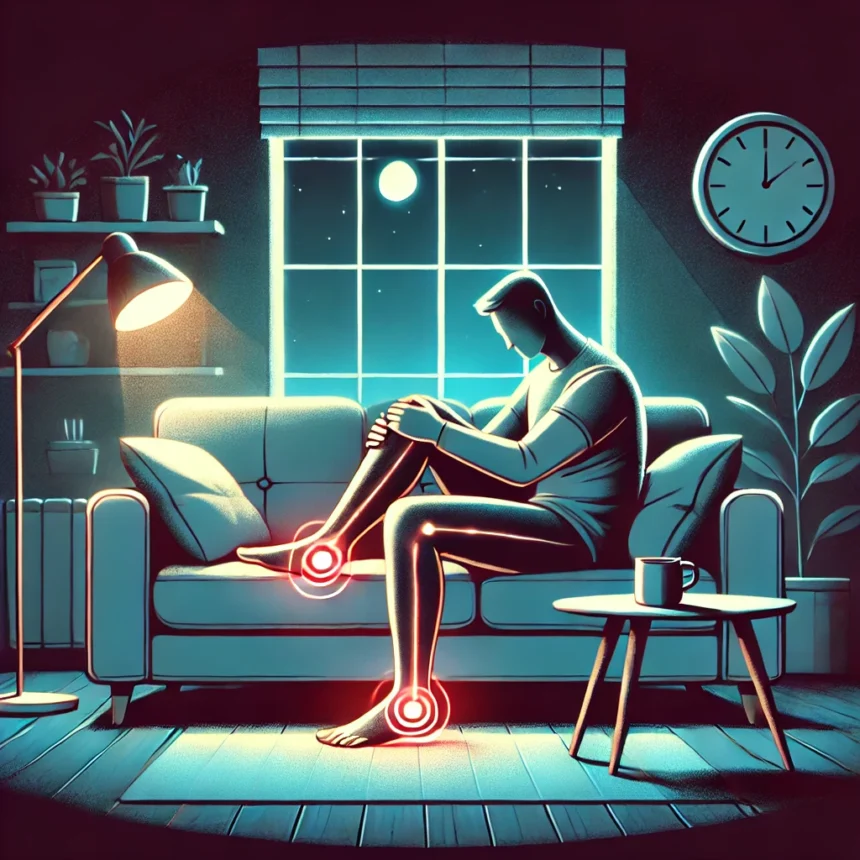Restless Leg Syndrome (RLS), also known as Willis-Ekbom illness, is a neurological disorder that affects people worldwide, including Nigerians. This disease causes an uncontrolled impulse to move the legs, which is frequently accompanied by unpleasant feelings that make sitting or lying still painful. Though it may appear to be a small inconvenience, RLS can severely impact sleep and quality of life if not treated. In Nigeria, understanding of neurological illnesses such as RLS is low, with many people attributing symptoms to exhaustion or spiritual reasons. Understanding the science behind the condition can help Nigerians detect signs early, seek proper treatment, and improve their general health.
MUST READ; Type 2 Diabetes: A Scourge in Africa
What is Restless Legs Syndrome (RLS)?
RLS is defined by an insatiable desire to move the legs, especially during periods of rest or inactivity. These feelings are commonly described as tingling, burning, creeping, or pulling, and they usually worsen in the evening or at night. Moving the legs provides immediate relief, but it can also disturb sleep patterns, cause weariness, and make it harder to focus during the day.
Common Symptoms of RLS
Nigerians with RLS may notice:
Uncomfortable Leg Sensations: Frequently characterized as a crawling or pulsating sensation nside the legs, which usually begins after periods of rest. Walking, stretching, or moving the legs provides relief from symptoms.
Evening Worsening: The sensations frequently become more intense at night, making it difficult to fall or stay asleep.
Daytime Fatigue: Due to poor sleep quality, people may feel fatigued and angry during the day.
Causes of RLS among Nigerians
While the precise etiology of RLS is unknown, numerous variables have been recognized as possible triggers:
RLS frequently runs in families, therefore Nigerians who have a family history of the disorder may be more likely to get it. Iron deficiency is a prevalent problem in Nigeria caused by dietary variables and medical problems such as anemia. Low iron levels might worsen RLS symptoms. Chronic diseases, such as diabetes, kidney failure, or peripheral neuropathy, are common in Nigeria and can increase the risk. Pregnancy: Temporary RLS is frequent during pregnancy, particularly in the third trimester, due to hormonal changes and iron deficiencies. Lifestyle factors: Smoking, excessive caffeine consumption (common with kola nut chewing), and poor eating habits can all cause or worsen RLS.
Effects of RLS on Nigerians
RLS impairs sleep quality, resulting in daytime weariness that can hinder productivity, especially in jobs that require manual activity or extended periods of concentration. Untreated, the illness can lead to mental health problems like anxiety and sadness. In a culture where symptoms are frequently misunderstood, people with RLS may experience shame or be urged to seek spiritual therapies rather than medical care.
Diagnoses and Treatments
Healthcare practitioners diagnose RLS based on symptoms, medical history, and physical exams. Blood tests to determine iron levels and other deficiencies may also be performed.
Treatment Options:
Lifestyle Changes: Setting a steady sleep regimen. Reducing coffee, alcohol, and tobacco consumption. Engaging in modest physical activity, such as brisk walking or stretching exercises.
Dietary adjustments: Incorporating iron-rich foods such as green leafy vegetables, beans, and seafood into your meals. Consuming oranges or pawpaw can help with iron absorption by providing Vitamin C.
Medical interventions: Iron Supplements: If an iron deficit is discovered. Drugs that modulate dopamine levels or nerve signals may be prescribed in extreme situations.
Home Remedies: Applying hot or cold packs to the legs. Massage the legs before going to bed.
Cultural Barriers and Solutions
Many Nigerians may not seek medical assistance due to a lack of understanding or cultural beliefs that associate health concerns with mystical powers. Educating communities about RLS through health campaigns in local languages, involving traditional leaders, and harnessing social media can all assist to close this gap. Furthermore, healthcare services continue to be expensive and difficult to get. Collaboration between the government and the private sector can help to enhance access to diagnostic and treatment services.
In conclusion, restless leg syndrome, while under-recognized, is a curable ailment that can have a substantial impact on Nigerians’ everyday lives if not addressed. Individuals can reclaim restful nights and productive days by learning about the reasons and symptoms, adopting healthy practices, and seeking medical attention. Nigerians must prioritize their health by listening to their bodies and getting professional counsel when needed. Let us strive together to create a society in which neurological diseases such as RLS are known, addressed, and treated efficiently.


